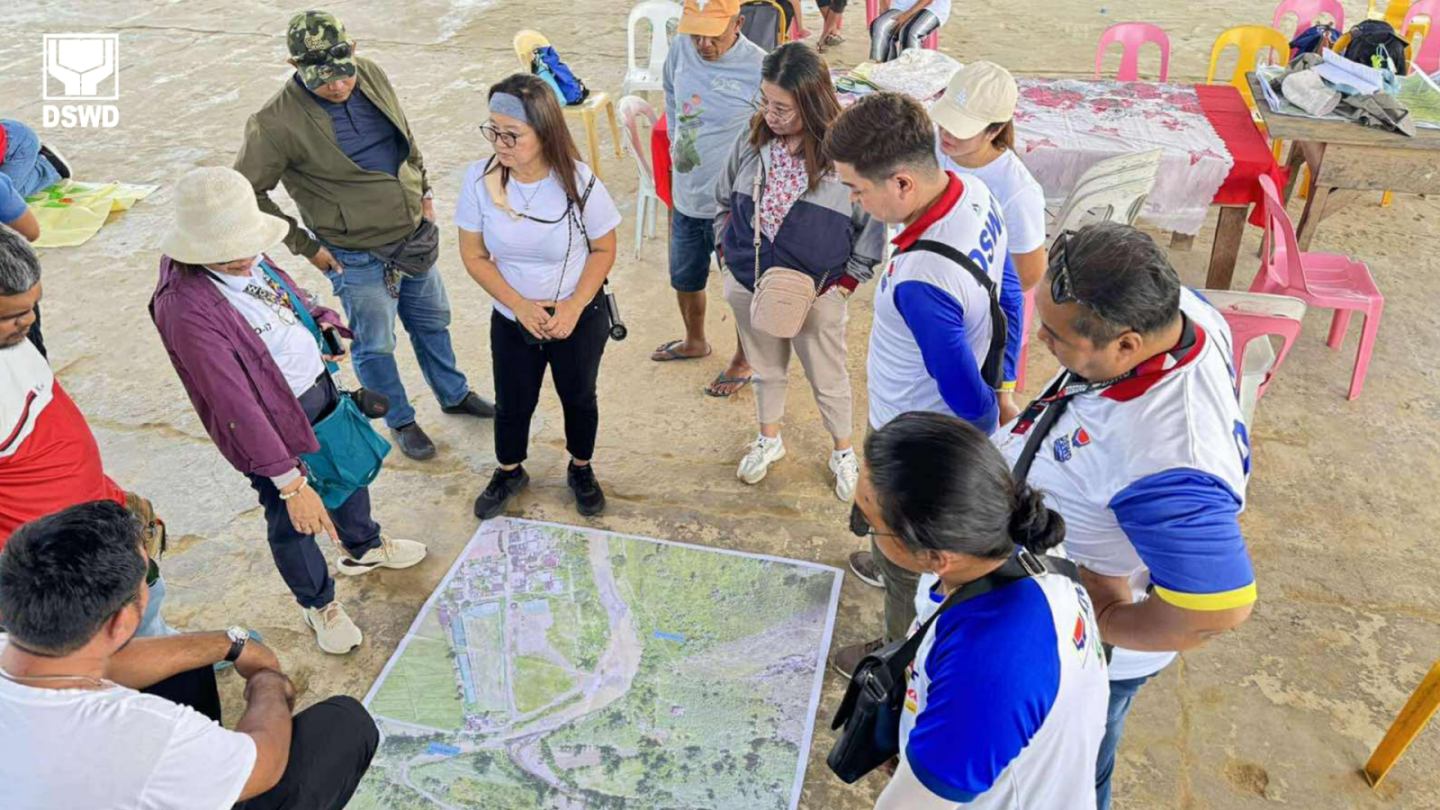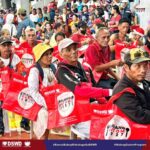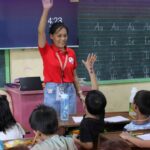
As part of its commitment to improving access to basic services in remote and underserved communities, the Department of Social Welfare and Development’s (DSWD) Kapit-Bisig Laban sa Kahirapan-Comprehensive and Integrated Delivery of Social Services (KALAHI- CIDSS) program is supporting the construction of three footbridges in Brgy. Pisompongan, Midsalip, Zamboanga del Sur.
KALAHI-CIDSS National Program Manager (NPM) Bernadette Mapue-Joaquin said the DSWD has allocated Php5.6 million for the construction of the footbridges.
“This subproject will ensure the safety and well-being of students, residents, and other vulnerable groups by providing a secure and reliable means of crossing, especially during adverse weather conditions and emergencies,” NPM Mapue-Joaquin said.
For the foot bridge project, the intervention was identified, prioritized, and proposed by community members themselves during the participatory situational analysis and project development process, according to NPM Mapue-Joaquin.
This intervention through the KALAHI-CIDSS Program is aligned with President Ferdinand R. Marcos Jr.’s commitment of alleviating poverty through subprojects that address the needs of a poor community while empowering locals to become active participants in driving change and progress.
“The goal of KALAHI-CIDSS is to provide better access to basic services and ensure to improve health, enhance education, strengthen disaster preparedness, and guarantee safety and security by alleviating poverty and uplifting the quality of life,” NPM Mapue-Joaquin said.
The KALAHI-CIDSS, as a poverty alleviation program, has already constructed various basic service facility subprojects such as bridges, roads, school buildings and rooms, evacuation centers, flood control, river control, drainage slope protection, and erosion control structures to ensure that communities in rural and geographically-isolated and disadvantaged areas (GIDA) will have access to basic services.
The KALAHI-CIDSS utilizes the community-driven development (CDD) approach which enables community members to take control over decisions and resources for their local development.
To fast-track the implementation, the Regional Project Management Office (RPMO) and the Area Coordinating Team (ACT) are currently conducting preparatory activities, including capacity-building sessions for local volunteers.
These efforts aim to equip the community with the knowledge and skills needed to complete the necessary documentary requirements and facilitate the timely commencement of the project.
“By addressing mobility and accessibility challenges, these basic service facility projects help improve access to education, health services, markets, and other socio-economic opportunities. The CDD approach ensures that local voices guide development investments, fostering ownership, sustainability, and inclusive development,” the KALAHI-CIDSS manager explained.
Community-driven development
In line with promoting the CDD advocacy, the DSWD will also conduct its first-ever immersion activity for national and local media on August 13 in Midsalip and Dumingag, Zamboanga Del Sur.
This event aims to showcase the real-life experiences of communities and how CDD strategies helped them in building resilient and inclusive interventions.
The activity will also provide an opportunity for members of the media and key stakeholders to witness firsthand the success stories, milestones, and transformative impacts of the DSWD’s programs at the grassroots level.
It also seeks to strengthen public awareness and appreciation of how empowered communities play a crucial role in driving sustainable development and resilience.
“We are inviting all interested national and local media outlets to take part in this first-ever media immersion activity, a significant event that offers a unique opportunity to witness community-driven initiatives and celebrate the inspiring efforts of local residents in building resilience and improving lives,” NPM Mapue-Joaquin said. (AKDL)


